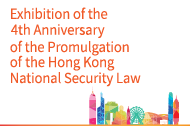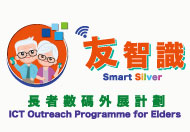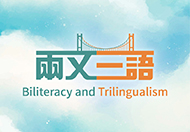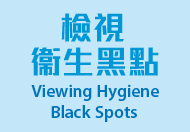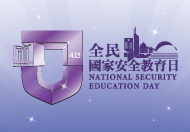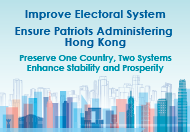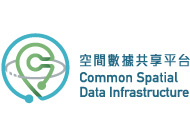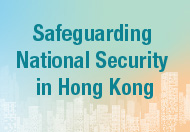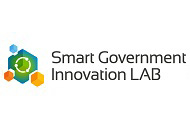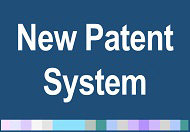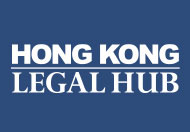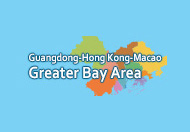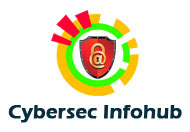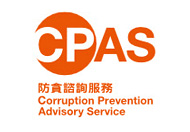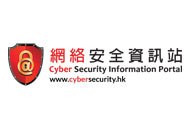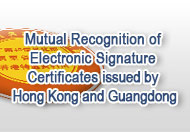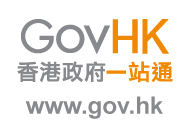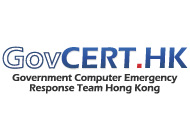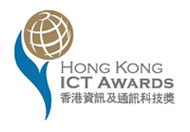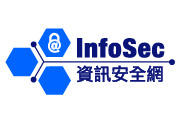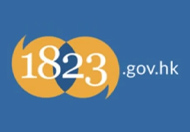Public Comments on the "Consultation Paper on the Review on Administration and Assignment of Internet Domain Names and Internet Protocol Addresses in Hong Kong"
| Reference No. |
:
|
DN32 |
| Date of Submission |
:
|
17.07.2000 |
| Submitted by |
:
|
Ms Patricia Hui Legal Counsel Hutchison Telecommunications (Hong Kong) Limited |
COMMENTS OF HUTCHISON WHAMPOA GROUP
ON
THE CONSULTATION PAPER ON
THE REVIEW ON ADMINISTRATION AND ASSIGNMENT
OF INTERNET DOMAIN NAMES AND
INTERNET PROTOCOL ADDRESSES
IN HONG KONG
PRELIMINARY
This memorandum sets out the comments and suggestions of the Hutchison Whampoa Group on the proposals made in the Consultation Paper on the Review on Administration and Assignment of Internet Domain Names and Internet Protocol Addresses in Hong Kong.
The Hutchison Whampoa Group is a conglomerate comprising approximately 1,600 companies incorporated in Hong Kong and overseas with business interests in various parts of the world. Currently, we have approximately 600 domain names registered worldwide and approximately 70 domain names registered in Hong Kong.
We welcome and are encouraged by the opportunity the Consultation Paper offers to express our views and recommendations on the proposed arrangements on the administration and assignment of internet domain names and internet protocol addresses in Hong Kong. We would also like to pay tribute to the efforts the Task Force has put into the Consultation Paper.
COMMENTS ON THE PROPOSED ARRANGEMENTS
A. Proposed Institutional Arrangements
1. Policy-making and administrative function relating to Internet domain names
1.1 We concur with the view of the Task Force that the future policy making and administrative body should assume the overall administration and assignment of Internet domain names and IP addresses and should have a wide representation from different sectors of the community. A non-profit making body, with membership open on a subscription basis to ISPs, the commercial sector, academia, the Government as well as other organisations and individuals with an interest in the development of the Internet, is certainly a widely adopted model overseas which we believe will achieve the aim of wide representation of views within this administrative and policy making body.
1.2 In view of the speed and flexibility at which the non profit-making body can be set up, we agree that the future policy making and administrative body should be a non statutory corporation. However in order for this body to represent Hong Kong in, and be recognised by, the international internet community, we are of the view that the body should be formally endorsed by the Government by way of a written agreement as suggested in the Consultation Paper.
1.3 If a non-statutory and non-profit making corporation is to be set up, new mandate, policies, guidelines, rules and terms and conditions should be drawn up and clearly defined for different aspects of the future framework and for the transitional related matters. We believe that the new body can build upon the wealth of experience of JUCC in the technical operation and administration of the existing system and of course the database would have to be transferred to the new body but do not necessarily agree that the new body should model upon the existing structure and operations of JUCC. We suggest that some form of steering committee composed of representatives from the academia, the commercial sector, the Government and the industry be set up to oversee, co-ordinate and facilitate the formation of this new body and transition of existing data from JUCC.
1.4 We agree with the Task Force's views that a Board of Directors should be appointed to exercise the policy-making function. With regard to the composition of the Board of Directors, we suggest the following:
(a) The Board of Directors will comprise a certain number of directors elected by membership. The number should not be too small in order to allow fair representation of different sectors of the community on the Board of Directors. On the other hand, the number should not be administrative-wise too big to handle.
(b) Directors will be required to be members of the new policy making and administrative body.
(c) The majority of the Board of Directors should comprise elected members, and the HKSAR Government will have a permanent position on the Board.
(d) After each annual election, the Board will elect its Chairperson from amongst the elected Directors. The Chairperson of the Board will have the responsibilities and duties normally associated with such a position.
1.5 We suggest that in the interim pending the establishment of the new policy making and administrative body that the members of the steering committee referred to above shall serve as the interim Board of Directors to prepare, inter alia, for the first elections of the Board of Directors. A target date (say maximum one year) should be set by which the first elections should be held. The election procedures will have to be further drafted and defined, which can be a future subject for public consultation.
1.6 We agree that the new policy making and administrative body can operate on a self financing and cost recovery basis deriving income principally from the registration and renewal of domain names.
2. Policy-making function relating to IP addresses
We concur with the Task Force's views that the existing arrangements on the allocation and distribution of IP addresses in Hong Kong should continue but if there are policy issues involved which may arise in the international arena in the future and which may have implications on Hong Kong, the new policy making and administrative body responsible for domain names administration should be involved.
3. Administrator of the ccTLD registry
In a small local community like Hong Kong, we believe that there are strong reasons to support maintaining a single ccTLD registry in Hong Kong to provide simple clearcut structure to applicants. We do not have any objection to the management of the registry being performed in-house. However should such role be outsourced, the duties, performance criteria, obligations and liabilities of the party to which the role is to be outsourced should be clearly spelt out and formalised in a legally binding written agreement.
4. Registrar and agents
4.1 Initially to avoid increasing the administrative burden of the new policy making and administrative body which may in turn delay the set up of such new body, we have no objection to:
(a) the Government taking over the registrar responsibility in respect of .gov.hk domain;
(b) the JUCC continuing to provide registration service in respect of .edu.hk domain; and
(c) maintaining one single registrar for .com.hk, .org.hk and .net.hk domain names.
4.2 The single registrar may engage agents to perform some of the routine registration work. However on top of signing an agreement to agree to adhere to the same set of registration practices and procedures required by the registrar, the agent should also pledge to perform the duties and responsibilities of the registrar up to the standard and requirements as from time to time required by the new policy making and administrative body.
4.3 In the long run, the volume of domain name registration and the speed at which such applications are handled should be kept under constant review to gauge as to whether multiple registrars system, seen in some foreign jurisdictions, should be adopted.
B. Domain Name Registration for .hk Domain Names
1. The guiding principles
We support the guiding principles set out in the Consultation Paper subject to the following:
(a) With regard to the principle set out in paragraph (c) that the registration of .hk domain names should be on a need basis, we feel that this is too restrictive and onerous. Please refer to paragraph B.2(b) below for our rationale behind such objection.
(b) Given that the "first come first served" principle should continue to be endorsed and adopted, and that the domain name registrar will not police as to whether any third party intellectual property rights have been infringed in the process of registration, we note that the domain name applicants have been required to avoid infringing upon the intellectual property rights of a third party. Please refer to paragraph B.2(c) below for our views and concern on this principle when put in practice.
2. Registration guidelines for .hk domain names
(a) Reserved list
We have no objection to the option of a reserved list as suggested in the Consultation Paper. However we believe that the criteria for inclusion of names/words in this reserved list together with the first draft of the reserved list should be made available for public comment. Thereafter the reserved list should be made available for public inspection, and should be updated as approved by the Board of Directors of the new policy making and administrative body. Any person with an interest may apply to the Board of Directors with supporting grounds and documentary evidence for inclusion of a particular name or word(s) to the reserved list.
We are uncertain as to the purpose and the benefits of this reserved list which are both unclear from the Consultation Paper. In practice well known names should have already been registered as domain names or trademarks. Is the reserved list for reference by the public and thereby the potential applicants? Or is it a reference document for the registry in its consideration and approval process of domain names applications? Does it mean that the names and words will not be available for registration and all application for domain names containing words or names in the reserved list will be automatically rejected by the registrar?
(b) Format and business nature of a domain name
We do not agree with the Task Force's view that the second level domain category being selected for a particular domain name application should similarly correspond to the business nature of the applicant with documentary proof from the relevant registry in Hong Kong as appropriate.
We acknowledge that "cybersquatting" is a problem which needs to be discouraged and tackled. However in the case of conglomerates like ourselves, which comprise companies incorporated in different jurisdictions with different business interests and operations being held and carried out by different groups of subsidiaries and associated companies, corporate planning is very important for business and other reasons. We firmly believe that our group, although comprising many individual legal entities, should be viewed on a whole and treated as a single entity in this context.
Applications may broadly be divided into 2 categories: (a) applications for domain names which correspond with the names of the relevant companies and (b) applications for domain names which resemble relevant trademarks/brand names. With regard to the first category of applications, imposing restrictions on the holding structure of the domain names may affect our genuine corporate planning for the group and we submit that the "business nature" requirement should be deemed to be satisfied if we can produce documentary evidence to show that the applicant for the domain name and the company (ies) carrying on the relevant business are within our Hutchison Whampoa Group.
For the second category of applications, the same argument applies. In addition, it seems that the only documentary evidence which may be produced perhaps would be the trademark application/registration. However there is currently no present requirement/restriction for an applicant or a registrant of a trademark in Hong Kong to be a company incorporated in Hong Kong nor a company carrying on business in Hong Kong. In the case of new ventures and/or products we believe that the purpose of protection will be defeated if no application can be made for a new domain name unless and until the corporate entity has been set up and/or the relevant trademark application is made therefor.
(c) "First come, first served" principle
We concur with the Task Force's view that the domain names should be registered on a "first come first served" basis. We also note that as the registrar would not assume the responsibility for checking whether a domain name being applied for infringes the rights of any third party, the responsibility rests with the applicants in the sense that they would be required to make a declaration to the same effect when making an application. We however doubt whether the real purpose can be achieved by simply a declaration. We do not believe that this requirement for a declaration will have a deterring effect on people engaged in cybersquatting. On the other hand the checking process, which needs to be done to ensure that the declaration is complied with, is in our view impractical, unduly onerous and burdensome, and penalises real users like ourselves.
(d) Multiple domain names per registrant organisation
We agree that each organisation should be allowed to register more than one domain name under .hk to enable local companies to use different .hk domain names for their products and services. However the problems outlined in paragraph (b) "Format and business nature of a domain name" would apply here as well.
(e) Transferability of domain names
We welcome the Task Force's view that transfer of domain names should in principle be allowed. We would however like to request the Task Force to define what circumstances would constitute valid grounds for transfer. There would be more grounds than what the Task Force has listed in the Consultation Paper if the Task Force acknowledges that there are genuine reasons for domain names to be held by non-trading and/or non-Hong Kong incorporated subsidiaries within the same group of companies. At least to quote as an example, internal restructuring/reorganisation should be allowed. Also we do not see why genuine sale and purchase on normal commercial terms, as differentiated from speculative trading, should not be allowed as one of the valid grounds.
(f) Local presence
In our view local companies and multinational organisations with a local presence at least should be allowed to register domain names. This scope is however still too narrow when viewed with the fact that registration of trademarks in Hong Kong does not have correspondingly local presence requirement. We are concerned that such a restrictive approach may become an impediment to genuine business development and on a wider horizon to the development of Hong Kong as a leading digital city.
(g) Domain names for individuals
To promote Hong Kong as a leading digital city, we do not see the reason for prohibiting individuals from applying for domain names. To prevent "cybersquatting", we agree that one individual should be allowed to apply for and register only one domain name.
(h) Renewal of domain names
We concur with the Task Force's views that all .hk domain names should be subject to renewal and that renewal fees should be charged. We would suggest that a variety of renewal options should be made available so that the registrants can opt for renewal for 1, 2, 5, 10 or more years having regard to their respective business requirements and financial resources. Failure to pay the prescribed renewal fee within a reasonable period of required time should be a ground, amongst others, to revoke the domain name registration so that they can be made available for registration by others.
C. Dispute Resolution for .hk Domain Names
1. Dispute resolution guidelines
(a) Registration authority to maintain a neutral role
We agree that the new policy making and administrative body should remain neutral in any dispute in relation to registration or use of domain names.
(b) Alternative dispute resolution mechanism
We certainly welcome in principle the establishment of an alternative dispute resolution mechanism which should provide a more effective, efficient and inexpensive way of dealing with complaints relating to domain names as compared to court procedures. However until defined rules for the alternative dispute resolution mechanism are drafted, no definitive view can be given on the mechanism. We therefore urge the Task Force to make available such draft alternative dispute resolution rules for public consultation
It is unclear from reading the Consultation Paper as to whether the dispute resolution procedure can only be invoked until all of the three types of evidence specified are produced or whether any one of those three specified is sufficient. The Consultation Paper also has not addressed the dispute resolution for rejected applications for domain names.
D. Other Comments
1. Revocation and suspension of registration
Grounds for revocation and suspension for registration should be clearly specified.
2. Warranty on Accuracy
We are of the view that the new policy making and administrative body should represent and warrant that reasonable endeavours will be used to ensure accuracy of information recorded in the registry to ensure confidence in the integrity of the registration system in Hong Kong.
CONCLUSION
As this round of consultation is very much focused on the framework of and the general principles behind the operation of the future policy making and administrative body, we urge the
Task Force to make available in the future draft detailed rules, regulations, policies and guidelines relating to all aspects of this body and indeed amendments from time to time of such rules, regulations, policies and guidelines for public consultation so as to allow views of different sectors of the community to be taken into account in the establishment and improvement of this future policy making and administrative body, which we believe is a very important element in establishing Hong Kong as a leading digital city.
We would also take this opportunity to request for a meeting with the Task Force at a time convenient to the Task Force to discuss the concern we have as a conglomerate on this issue.
Hutchison Whampoa Group
July 2000







